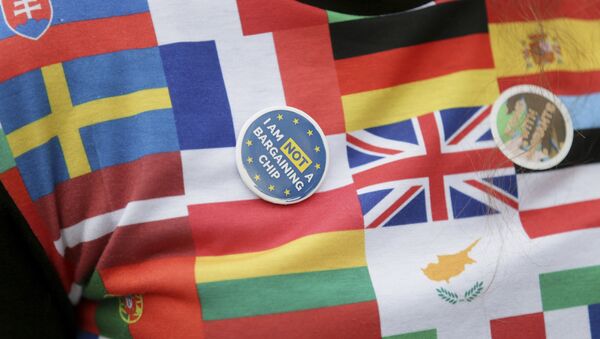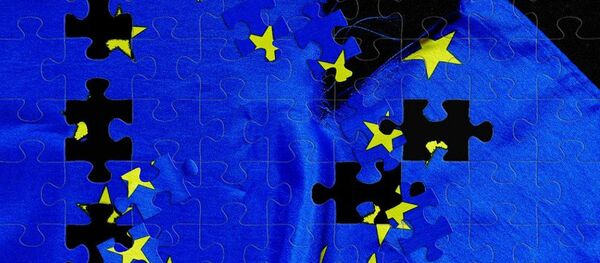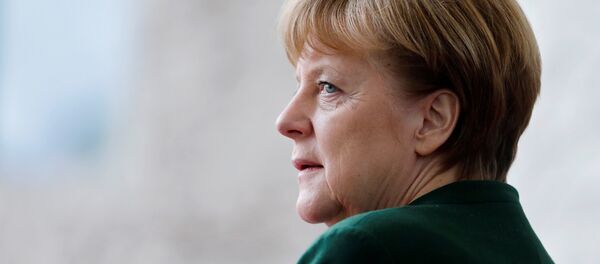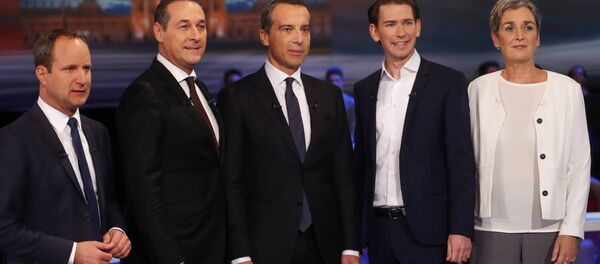The Bundeswehr believes an end to the European Union in its current form in decades to come is entirely plausible, according to "Strategic Perspective 2040" — a 102-page report speculating on how global economic, military, cultural and social trends, and international conflicts, could shape German security policy in future.
The document was released for internal use by the Bundesministerium der Verteidigung (Ministry of Defense) and kept under wraps subsequently, although German daily Der Spiegel obtained a copy through undisclosed channels.
In seeking to assess the Bundeswehr's potential future needs in respect of funding, equipment and size, it outlines six scenarios, one of which is titled, The EU in Disintegration and Germany in Reactive Mode.
The report's authors assume a worst-case-scenario, in which a "multiple confrontations" arise in a world where the international order had eroded after "decades of instability," value systems worldwide diverge and globalization has halted.
"EU enlargement has been largely abandoned, other states have left the community, and Europe has lost its global competitiveness. The increasingly disorderly, sometimes chaotic and conflict-prone world has dramatically changed the security environment of Germany and Europe," the report envisaged.
In another, Multipolar Competition, extremism is on the rise across the continent, and some EU partners "even occasionally" seek to emulate Russia's "state capitalist model."
Just two of the scenarios envisaged a more peaceful world in future.
The simulations were formulated and investigated by scientists in the Federal Armed Forces Planning Office.
Impending Collapse?
The document is careful not to brand any of the tentative scenarios likely, merely "plausible with the 2040 time horizon." However, fears of a potential future EU-breakup among the upper echelons of leading member states, and Brussels itself, are very real.
German Chancellor Angela Merkel previously revealed she was rocked by Brexit, and feared for the future of the EU, although she was said to have been imbued with fresh hope by the election of Emmanuel Macron in France. However, Macron himself has acknowledged without fundamental reform, the bloc's days may indeed be numbered.
The question of how to reform the EU has troubled leaders for some time. Sizable and growing public opposition to deeper integration across the continent led EU leaders to repeatedly moot a "multi-speed" Europe in the lead up to the Rome Declaration.
While intended as a panacea that would stifle such controversy, the concept was hotly contested by several European leaders, on the basis the concept could create a Europe of "first class" and "second class" countries.
At the time, Lubos Blaha, Chair of the Committee of the National Council of the Slovak Republic for European Affairs, succinctly summed up these fears.
"They talk about open cooperation. In fact, this will mean that if your opinion does not coincide with that of the strongest [EU members] in just one instance, you won't be able cooperate with them on other issues," Blaha previously told Sputnik.
In codified form, the Rome Declaration instead spoke of Europe moving at "different paces… in the same direction," while failing to offer concrete timetables or commit to any specific policies or actions.
Populism on the Rise
Such equivocation may have been prudent, given a July report on populism in the EU produced by the European Policy Information Centre found the total number of European voters who support anti-establishment forces stands at around 21 percent, and such groups hold power in seven member states, a quarter of the bloc overall.
Both parties, and any resultant government the pair form, will likely be committed to downsizing the EU's role in the country, and other member states.
Vienna is scheduled hold the EU presidency in the second half of 2018, just as Brussels seeks to conclude Brexit talks.
Moroever, the anti-establishment Alternative for Deutschland (AfD) gained 94 seats in Germany's October federal election. It stood on a platform critical of further European integration, institution of inter-European immigration measures and dissolution of the eurozone.
Italy, a country yet ravaged by the 2010-2012 debt crisis, is also scheduled to hold an election before May 2018. Opinion polls consistently place the highly euroskeptic Five Star Movement at the top of the field.





